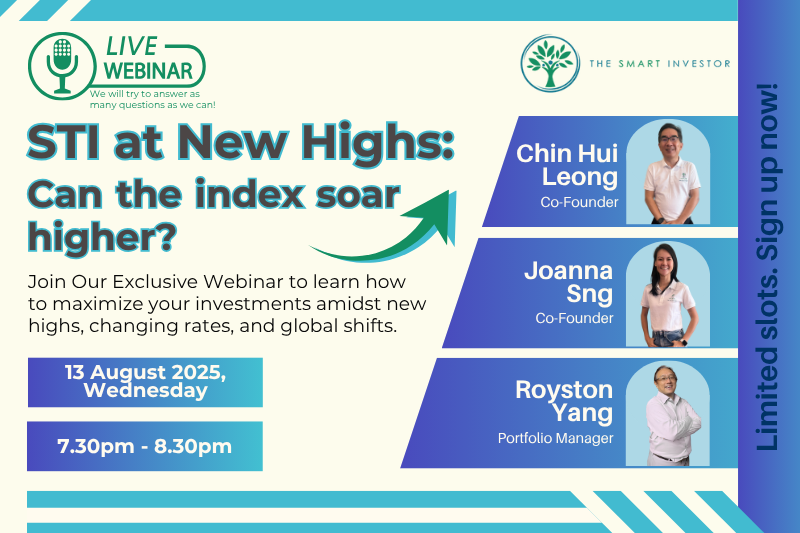The stock market was on a wild roller-coaster ride this week.
The sharp volatility began when President Trump announced a slew of “reciprocal” tariffs on more than 180 countries in what he termed “Liberation Day”.
This pronouncement led to a sharp plunge in the Straits Times Index (SGX: ^STI) as pessimism engulfed the market.
Just a few days later, Trump announced a surprise 90-day pause on tariffs in a stunning U-turn, causing markets to stage a relief rally.
Is the worst over for this tariff saga?
If not, here’s how should you position your portfolio to enjoy a good night’s sleep.
A trade war is brewing
It’s still early days for this tariff tantrum as it seems Trump is just getting started.
These tariffs are presumably being used as a negotiation tool with other nations in some cases and as a pressure tactic in others.
Notably, China and the European Union (EU) have refused to back down and have come up with retaliatory tariffs.
The EU approved measures to target more than €20 billion of US products but has paused them for now after Trump gave a 90-day reprieve.
China’s situation looks even worse.
In the course of just a week, tariffs on Chinese imports have surged from 54% to 104% and are now 125%.
China’s retaliatory tariffs on all US imports have been raised to 84%.
There could be no end in sight as both superpowers continue their rivalry and ratchet up their rhetoric.
The world could be on the brink of a punishing trade war in which no nation wins.
Hard to predict human behaviour
Aside from China and the EU, there are also a host of countries that will respond to Trump’s tariffs.
Some, like ASEAN and Vietnam, are open to negotiations and will not impose retaliatory tariffs.
Others, however, may go the way of China or the EU.
It’s tough to predict how each country will respond and there could be a wide range of possibilities.
Hence, the stock market will remain volatile in the near term as investors react to tariff news events.
There’s also the question of how the tariffs may impact consumer demand and in the worst-case scenario, may trigger a global recession.
Blue chips and dividend stocks for resilience
During turbulent times, it’s helpful to position your portfolio well to weather the storm.
Blue-chip stocks are a great choice as these businesses have experience in managing different economic conditions.
Most of them also have a stellar track record of navigating headwinds and macroeconomic challenges such as inflation and surging interest rates.
Several examples of solid blue-chip names include Singapore’s largest bank, DBS Group (SGX: D05), and bourse operator Singapore Exchange Limited (SGX: S68).
Dividend-paying stocks are another solid choice.
Businesses with a strong record of paying dividends are usually flush with cash and can generate consistent, reliable free cash flow.
REITs are a great choice for income-seeking investors and some examples include Frasers Centrepoint Trust (SGX: J69U) and CapitaLand Integrated Commercial Trust (SGX: C38U).
There are other dividend-paying stocks such as Haw Par Corporation (SGX: H02) and Venture Corporation (SGX: V03) which can dish out reliable payouts.
These dividends can help to provide a stream of passive income as you wait for the troubles to recede.
Businesses with local or regional exposure
In addition, you can choose businesses with limited exposure to Trump’s tariffs.
Although tariffs should eventually filter down to every industry in the form of higher prices, some sectors will be more badly hit than others.
Hence, it makes sense to go with businesses with more of a local or regional presence to minimise the impact of these tariffs.
Some examples include Sheng Siong (SGX: OV8), which runs a total of 77 supermarkets in Singapore, and Fraser & Neave (SGX: F99), which sells food and beverages in the Asian region.
By including such businesses within your portfolio, you can mitigate the adverse impact of the tariffs.
Get Smart: The situation remains fluid
At the time of writing, the tariff situation remains very fluid.
No one knows what happens when the 90-day pause is up, and neither does anyone know what other plans Trump has up his sleeve.
Therefore, it’s safe to assume that markets will remain on tenterhooks as investors stay alert for any new developments.
By structuring your portfolio well, you can enjoy a peaceful night’s sleep without having to worry too much about what happens in the coming weeks and months.
Generative AI is reshaping the stock market, but not in the way most investors think. It’s not just about which companies are using AI. It’s about how they’re using it to unlock new revenue, dominate their markets, and quietly reshape the business world. Our latest FREE report “How GenAI is Reshaping the Stock Market” breaks the hype down, so you can invest with greater clarity and confidence. Click here to download your copy today.
Follow us on Facebook and Telegram for the latest investing news and analyses!
Disclosure: Royston Yang owns shares of DBS Group and Singapore Exchange Limited.






